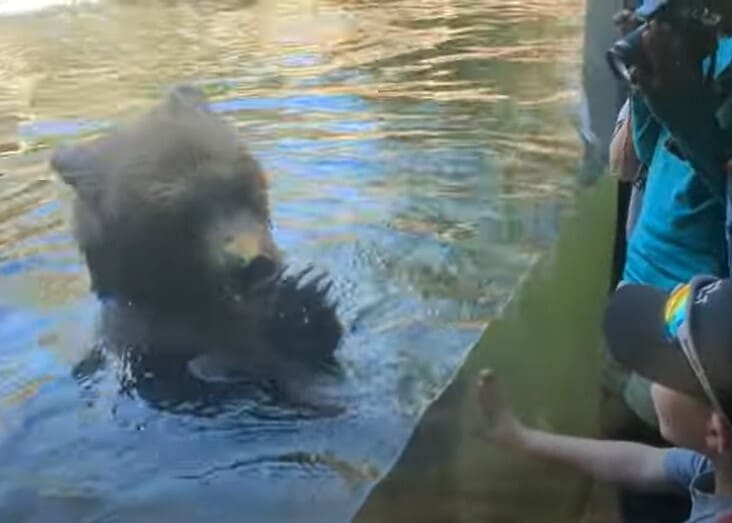At the Woodland Park Zoo in Seattle, a startling encounter unfolded before a group of children during a birthday party. A bear named Juniper, previously observed in a seemingly calm state, suddenly exhibited its predatory instincts. As the children watched, Juniper targeted a mother duck and her ducklings swimming in a pool within the enclosure. Despite the serene setting, the bear’s actions quickly turned the scene into a live demonstration of nature’s raw and unpredictable behaviors.
The incident was captured by a mother, Rachelle, who had brought her daughter and friends to the zoo to celebrate a birthday. They expected a day filled with fun and educational animal sightings. Instead, they found themselves witnessing the bear aggressively hunting and consuming the ducklings. The children’s reactions ranged from shock to distress, audible in the video as they screamed and hit the glass of the enclosure in a futile attempt to save the ducks.
Rachelle later shared the video on TikTok with a caption that encapsulated the traumatic nature of the event, humorously calling it a “Nat Geo train wreck” for her daughter’s birthday celebration. Her commentary highlighted the unpredictable nature of zoo environments, where educational experiences can unexpectedly turn into graphic displays of animal behavior.
This event raises questions about the exposure of young children to the realities of predator-prey dynamics in controlled environments like zoos. While such settings aim to educate and inform, they can also inadvertently expose children to the more brutal aspects of animal life, sparking debates about the psychological impacts on young viewers.
The reaction online and from the zoo community reflects a mix of fascination and concern, illustrating the complex relationship humans have with nature. It serves as a reminder of the importance of preparedness and sensitivity when facilitating interactions between young audiences and wildlife, ensuring that educational goals are met without causing distress or harm.




